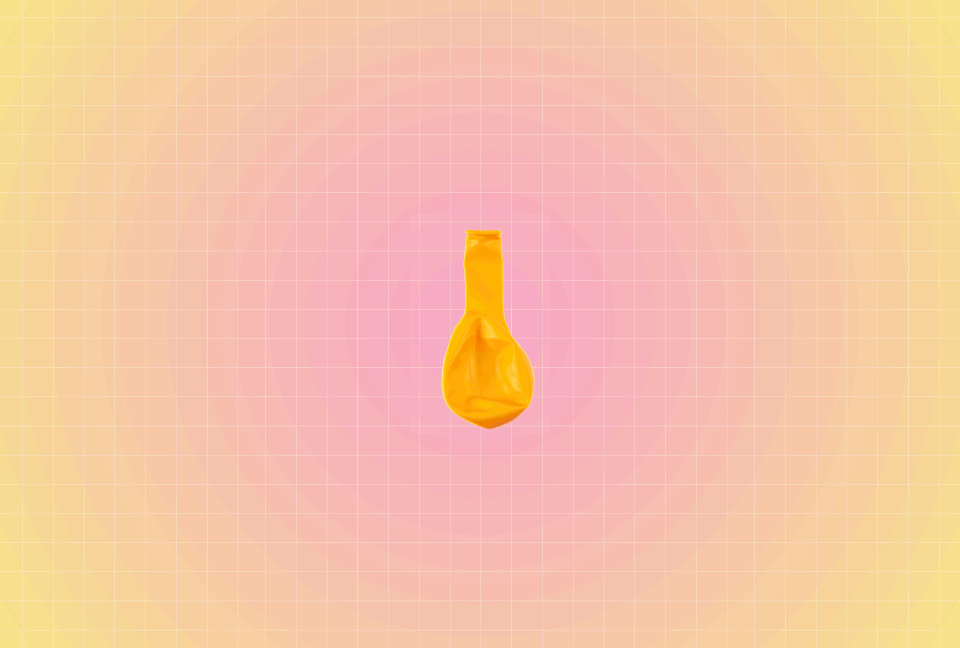What Happens to Your Body When You’re Bloated
If your stomach feels as if it’s a blown-up balloon, here’s how to deflate it.

Getty Images
Reviewed by Dietitian Emily Lachtrupp, M.S., RD
Bloating—you know the feeling. That uncomfortable, distended sensation in the stomach. It’s a feeling we’ve all experienced at one time or another. (Cue unbuttoning your pants after dinner or changing into sweatpants as soon as you get home.) Nearly 1 in 5 people worldwide experience bloating at least once per week, according to a 2023 global study in the journal Gastroenterology.
Related: Why Bloating Can Be Normal and Healthy, According to a Dietitian
Still, even if it’s common doesn’t mean you want to deal with that belly-ballooning feeling. If you’re wondering what exactly happens to your body when you’re bloated, keep reading to learn more about the triggers, symptoms and effective remedies for managing bloating.
What Is Bloating?
Bloating is a common digestive condition characterized by a sensation of fullness and tightness in the abdomen, sometimes accompanied by visible swelling. (This visible swelling is often referred to as distension, as if you have a balloon expanded inside your belly.)
According to the American College of Gastroenterology, bloating occurs when excess gas, liquids or solids accumulate in the digestive system, creating an uncomfortable sense of fullness. “When you’re bloated, organs in your digestive system become full of gas or air. This causes your digestive tract to stretch and become bigger, leaving you with a rounder-than-usual abdomen. Bloating can leave you feeling uncomfortable and hoping for relief,” says Brittany Lubeck, M.S., RD, a registered dietitian and nutrition writer.
The #1 Spice to Help Reduce Bloating, Recommended by an Expert
Causes of Bloating
One common culprit behind bloating is your eating habits. For example, eating too fast can lead to swallowing excess air that accumulates in the digestive tract and causes discomfort, according to a 2019 article in American Family Physician. Certain medical conditions, such as irritable bowel syndrome, are also commonly associated with bloating, according to the National Institute of Diabetes and Digestive and Kidney Diseases.
Additionally, certain foods can cause bloating or worsen symptoms. One example of bloat-inducing foods are those rich in fiber. While fiber is typically beneficial for digestion, it can also lead to bloating as your gut works overtime to break down fiber, which produces excess gas. This bloating is most likely to happen as you switch from a low-fiber to a high-fiber diet, suggests a 2020 study published in Clinical and Translational Gastroenterology. (That’s why dietitians suggest ramping up fiber intake slowly when you’re starting to include more of these foods in your diet.) The study also found that a high-protein diet can be another common cause of bloating.
What Happens to Your Body When You Eat Too Much Fiber
Bloating Symptoms
Below, find common bloating symptoms, per a 2020 study published in Clinical Gastroenterology and Hepatology:
Abdominal distension
Abdominal fullness
Abdominal pressure
Treatment and Prevention
If your bloating isn’t due to an underlying health condition, it may be happening because of what you eat and how you’re eating it, says Lubeck. “The good news, however, is diet habits can be changed to decrease bloating,” she adds.
The at-home remedies below can really help make a difference in your comfort when occasional bloating strikes. However, if bloating is happening often—at least once per week—and diet changes aren’t helping, see your doctor. They may want to rule out certain GI conditions like IBS or SIBO (small intestinal bacterial overgrowth) or consider an intolerance, such as lactose intolerance.
For occasional bloating, here are six strategies you can try:
Gentle movement: Light physical activity—a short walk, stretching—can stimulate digestion and help move trapped gas through the digestive tract, according to a 2021 trial in Gastroenterology and Hepatology from Bed to Bench.
Sip tea: “Herbal teas like peppermint, ginger and chamomile may be your best bet for bloating,” says Lubeck. The warm fluid may also feel soothing to your stomach.
Hydrate: Drinking water throughout the day can help food pass through the digestive system.
Take peppermint oil: Peppermint oil is a natural remedy known for its gut-soothing properties. Studies show it may help relax the gastrointestinal tract muscles by reducing spasms and bloating, according to 2019 research in BMC Complementary Medicine and Therapies.
Pop probiotics: Probiotics may also be helpful in reducing bloating, says Lubeck. Supplementing with probiotics may help reduce gas production, suggests a 2022 review in Neurogastroenterology & Motility.
Eat mindfully: Eating slowly, chewing thoroughly and savoring your meals can reduce air intake, minimizing bloating symptoms, per a 2022 study published in BMC Psychology,
The Bottom Line
Bloating is a common GI symptom that everyone experiences on occasion. It’s typically caused by eating too fast, swallowing air and eating foods high in fiber or protein. Common symptoms include abdominal distension, discomfort and excess gas. Fortunately, there are natural approaches you can take to help manage these symptoms. These approaches include eating mindfully, engaging in gentle exercise after eating and staying hydrated, among others. Visit your doctor or health care provider if your bloating symptoms persist or are causing significant pain or affecting your ability to function.
Read the original article on Eating Well.

